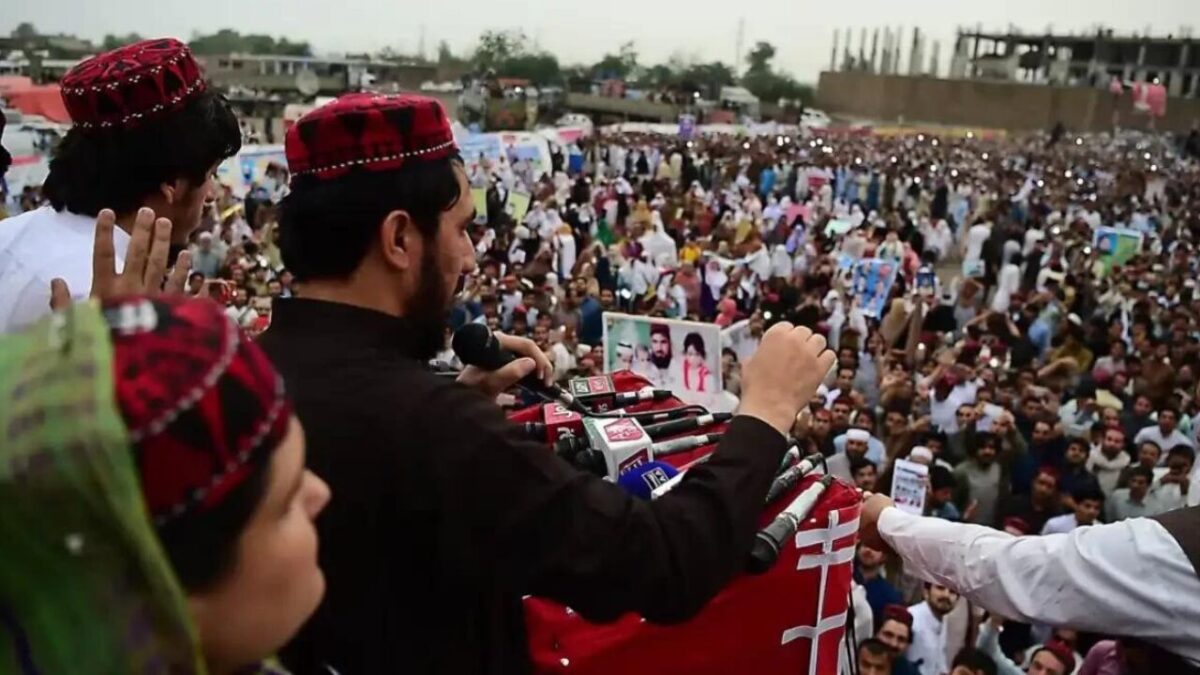As the Pashtun Tahafuz Movement (PTM) gears up to convene a grand assembly to advocate for Pashtun rights, the Pakistani government has imposed restrictions on gatherings in Khyber Pakhtunkhwa, as part of a broader crackdown on political and civil movements.
PTM leader Manzoor Pashteen reported that Pakistani security forces have arrived at the site with heavy equipment, digging trenches in an attempt to prevent the gathering.
Despite Islamabad’s efforts to block the event, PTM plans to go ahead with the three-day Tribal Justice Jirga on October 11. The assembly will bring together political leaders from Khyber Pakhtunkhwa and Balochistan, as well as activists and community figures, to discuss the rights and future of the Pashtun people.
Founded in 2014, the PTM is a grassroots movement led by Manzoor Pashteen, which advocates for the civil and human rights of Pashtuns. The group has long accused the Pakistani government of discrimination against Pashtuns. In response, the provincial government has banned gatherings of more than five people.
Pashteen took to social media to condemn the restrictions, stating, “In Pakistan, Pashtuns are not even allowed to hold meetings based on their traditions in their historical villages. Despite the opposition, we are determined to hold the Jirga.”
The Pakistani government has banned the PTM’s activities, labeling the movement a threat to national security. While Pakistan’s Minister of Information suggested that PTM has connections with “terrorist organizations,” he provided no evidence of direct links to the Tehrik-i-Taliban Pakistan (TTP).
The planned Jirga has also sparked reactions across the Durand Line. Some Afghans view the PTM’s cause as aligned with their own, given the ethnic ties between Pashtuns on both sides of the border. Afghan political figures, including former Foreign Minister Mohammad Hanif Atmar and former intelligence chief Rahmatullah Nabil, have voiced support for PTM, highlighting what they view as the systematic oppression of Pashtuns in Pakistan.
However, critics argue that Afghan support for PTM constitutes interference in Pakistan’s internal affairs. Arif Rahmani, a political analyst, pointed out the irony of Afghan leaders championing the rights of Pashtuns in Pakistan while they overlook the rights of ethnic minorities within Afghanistan.
The PTM’s slogan, “Lar aw Bar Yaw Afghan” (Pashtuns on both sides of the Durand Line are one people), resonates with many in Afghanistan who seek unity among Pashtuns. Others caution that this focus could exacerbate ethnic tensions and detract from the inclusivity of other groups.
Pastheen also said on X on Wednesday that the Pakistani security forces opened fire on the participants of the assembly. The videos on social media shared by the PTM members shows fired bullets by the Pakistani police.
The Afghan Taliban have yet to comment on the Jirga. However, the group’s foreign ministry previously urged Pakistan to engage in dialogue with political opposition amid ongoing protests by Pakistan’s Tehreek-e-Insaf (PTI) party.
International human rights organizations, including Amnesty International and Pakistan Human Rights Watch, have condemned the Pakistani government’s actions against the PTM, calling on Islamabad to respect the right to peaceful assembly and expression.




